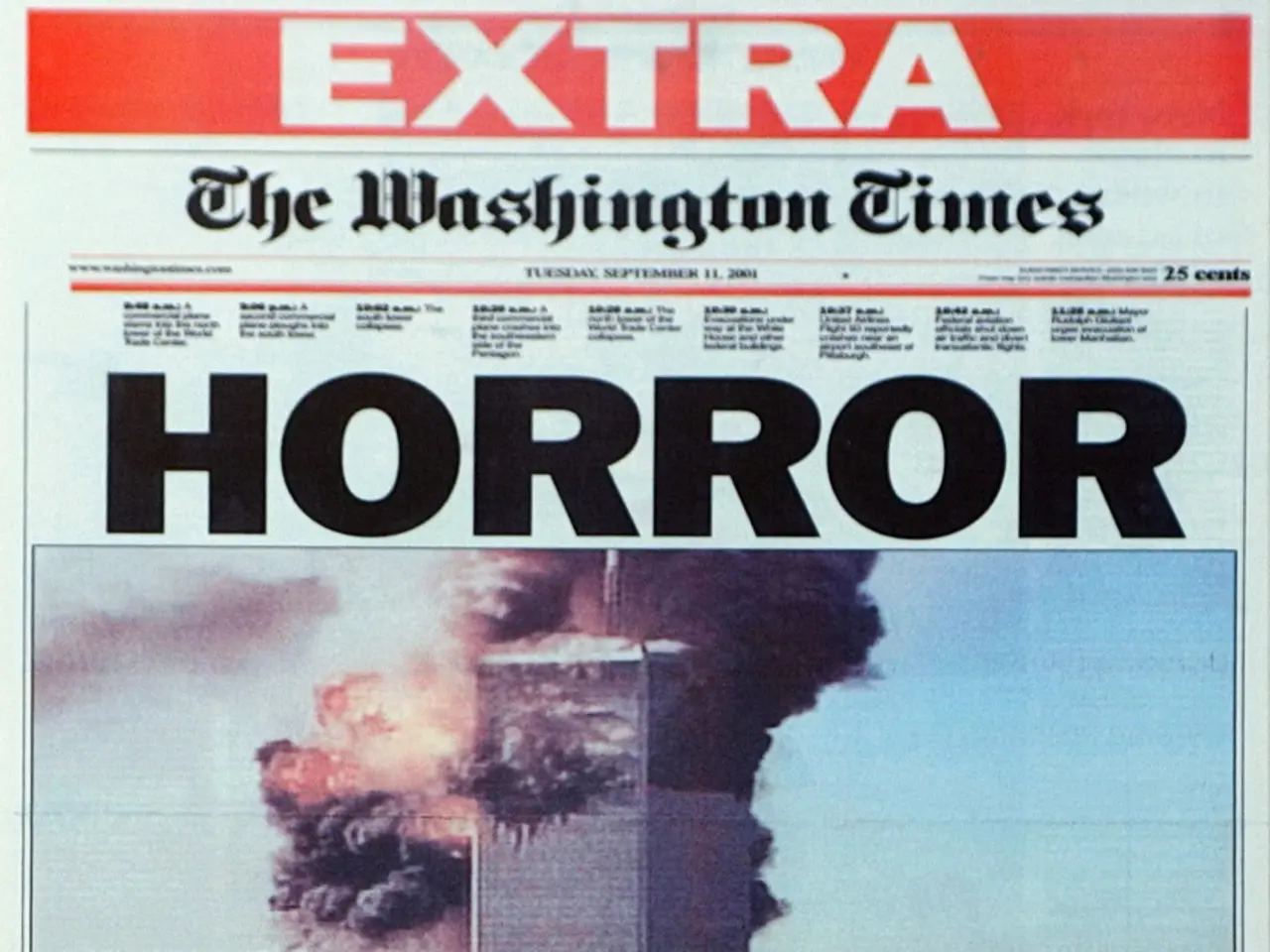Trump skilfully manages Iran-Israel truce, yet questions linger
Fresh Take
After a 12-day faceoff, Israel, Iran, and the United States all declared victory in the conflict that concluded on Saturday with the US bombing Iran's key nuclear sites. This showdown followed Israeli initiated attacks on Iranian nuclear facilities.
Donald Trump, under fire for breaking campaign promises against foreign military involvement, managed to present a speedy resolution and portray himself as a peace broker, despite the bombing incidents.
According to Will Todman, a senior fellow at the Middle East program at the Center for Strategic and International Studies, Israel's unwillingness to sustain a long-term war and Trump's reluctance to ignite a new conflict in the region significantly influenced the outcome.
Trump's unconventional announcement of the ceasefire on social media late Monday, just after Iran responded with missile attacks on a US base in Qatar, caught many off guard. Yet, the president opted not to retaliate, and instead, urged Israel to halt further attacks on Iran.
Iran, bearing the brunt of the worst assault since the 1980-88 war with Iraq, needed a way out, and Trump seemingly offered incentives by hinting at easing US pressure on China to stop purchasing Iranian oil.
The Israeli military, despite being the region's strongest, has been tested by campaigns in Gaza, Syria, and Lebanon. With Iranian strikes this month, the Israeli populace endured the most protracted and deadly air attacks seen in decades.
After hailing Trump's intervention, his warning to Israel to stand down likely underscored the limits to US support, as per Todman.
What was achived?
Trump hailed his intervention as a monumental success, though critics caution that such an attack could push Iran towards a nuclear bomb more covertly. While Trump claimed Iran's nuclear program was "annihilated," a classified report disclosed that the US bombing did not destruct the core components of the three nuclear sites, according to CNN and The New York Times.
Brian Katulis, a senior fellow at the Middle East Institute, questions if the ceasefire would endure. He attributes the role of the Gulf Arab powers, led by Qatar, in quiet diplomacy as instrumental in attaining a return to calm in their region.
Katulis points out that Trump's verbal threats, while significant, matter less compared to the continuous role these countries play. He contends that the Trump administration's tactical military operations combined with a heavy dose of strategic communications have created confusion among Americans and global actors regarding the administration's objectives.
At-Home Impact
Trump's diplomacy had evident benefits at home, even if temporary. A prolonged US military campaign could have potentially fractured Trump's base support. However, the ceasefire likely kept the majority of his MAGA and other Republican base unified, even if they were less than thrilled in somequarters.
While traditional hawks of Trump's Republican Party largely cheered the Iran strikes, they were widely denounced by rival Democrats. Annelle Sheline, who resigned from the State Department to protest policies under former president Joe Biden, emphasized the importance of enforcing the ceasefire, as Israel has violated truces in the past, exploiting what she called America's unconditional support.
Sheline stressed that Trump demonstrated he could restrain Israel when he chose to do so, now requiring him to enforce a ceasefire in Gaza as well.
© 2025 AFP
Insights IntegrationThe ceasefire agreement was officially confirmed on June 23, 2025, with both Israel and Iran committing to the truce. While the ceasefire largely held, Israeli Prime Minister Benjamin Netanyahu stated that the Israel Defense Forces had achieved all their military objectives. Despite initial violations by both sides, the truce largely held after June 24, according to various sources[2][3]. The conflict resulted in significant damage to Iranian nuclear infrastructure, causing delays or degradation in their nuclear capabilities. Iran continued diplomatic engagements to uphold the ceasefire[1][3], even as militant groups like the Houthis continued proxy attacks supporting Iran[1].
[1] Mili, P., & Smith, L. (2025, June 26). Israel, Iran, US Clash Over Missile Attacks: Live Updates. The New York Times.
[2] Advisory Council on Foreign Relations. (2025, June 24). How the Middle East resolved its conflict with Israel and Iran. Foreign Affairs.
[3] Silber, I. (2025, June 24). Israel, Iran and US reach ceasefire agreement following missile attacks by both sides. Haaretz.
[4] Solomon, D. (2025, June 25). Iran-Israel conflict: What we know. NBC News.
[5] Levy, R. (2025, June 25). What we know about the Russo-Ukrainian conflict. CNN.
- The United States, with its diplomatic efforts led by President Trump, played a significant role in brokering the ceasefire between Israel and Iran, as outlined in various sources.
- The international community, including Gulf Arab powers like Qatar, played a crucial part in facilitating the truce between Israel and Iran, according to Brian Katulis of the Middle East Institute.
- The United States, while presenting a speedy resolution to the conflict, faced criticism for its military intervention in the Middle East, particularly from rival Democrats who argued that Trump's actions could destabilize the region.
- The ceasefire resulted in damage to Iran's nuclear infrastructure, according to several news outlets, potentially affecting the Iran's nuclear capabilities in the long run.





